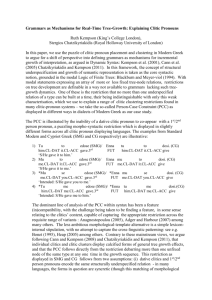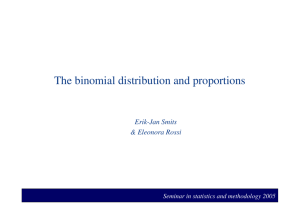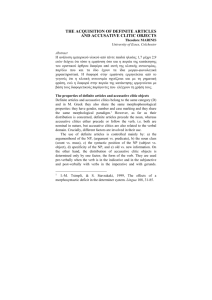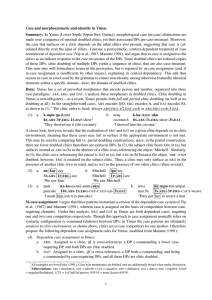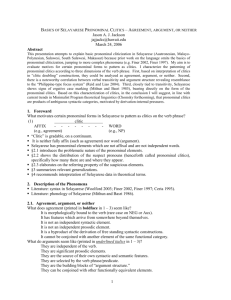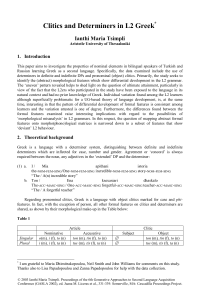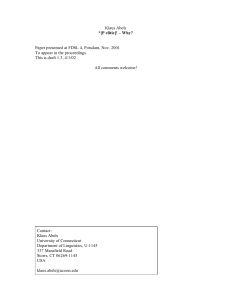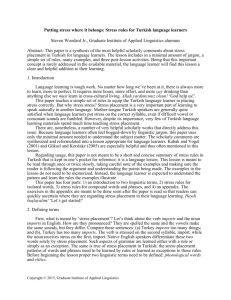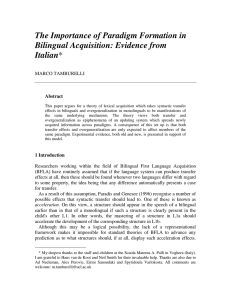Presentation on clitics - Deep Approach to Turkish Teaching and
advertisement
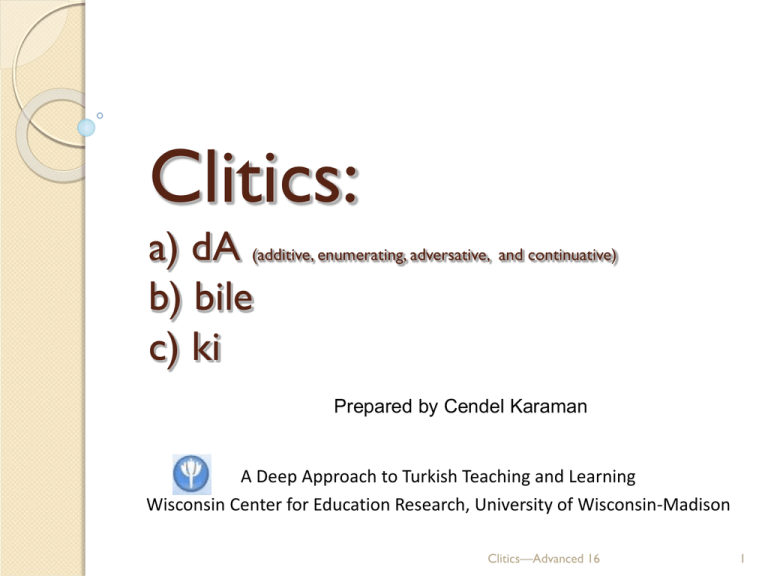
Clitics: a) dA (additive, enumerating, adversative, and continuative) b) bile c) ki Prepared by Cendel Karaman A Deep Approach to Turkish Teaching and Learning Wisconsin Center for Education Research, University of Wisconsin-Madison Clitics—Advanced 16 1 Introduction Here, we will study linguistic units (often appearing as a separate word) that do not fully convey meaning on their own. In the Oxford Concise Dictionary of Linguistics defines clitics as “any grammatical unit that is not straightforwardly either an affix or a word on its own” (Matthews, 2007, p. 59) Some commonly used clitics in Turkish are dahi, bile, ki, mI, ya, and ise. Clitics 2 Introduction dA is commonly used in the sense of “too” and “also” For example: Ben de öğretmenim. [I am also a teacher] Araba da aldık [We also bought a car] This does not mean “we bought a car as you did” but it means “in addition to other things we bought a car” Clitics 3 dA The clitic “dA” can function as additive, enumerating, adversative, and continuative. (Göksel and Kerslake, 2005, p. 110). Now lets explore each use in sample sentences. a) additive Ben hiç konuşmadım. Dinlemedim de. [I did not speak at all. Moreover, I did not listen.] Clitics 4 dA Now lets explore other uses in sample sentences. b) enumerating Ali de Sinem de başkan adayı... [Both Ali and Sinem are presidential candidates] Clitics 5 dA c) adversative Ben oraya gitmedim de arkadaşım gitmiş. [I did not go there but my friend has been there.] d) Continuative/topic shifting Getirdiğim yemeği de bu sabah yaptım. “As for the dish I brought, I made that this morning” Clitics 6 bile This clitic functions as an additive Ali bile spor yapıyor. [Even Ali does sports] Ali spor bile yapıyor [Ali even does sports] Ali çıktı bile [Ali already left] Clitics 7 ki Borrowed from Persian, this clitic primarily functions as a clause connector. Here are some examples: a) Görüyorum ki çok iyi hazırlanmışsın. [ I see that you have prepared very well] b) Onu çağırdım ki bize yardımcı olsun. [I called him so that he would help us] c) Ben bir şey anlamadım ki [I just couldn’t understand anything] d) Eğer gelirse ki geleceğini sanmıyorum onunla tartışma. [If he comes, which I don’t think he will, do not argue with him] For more examples, see (Göksel and Kerslake,2005, pp. 111-112) Clitics 8 References Göksel, A. & Kerslake, C. (2005). Turkish: A comprehensive grammar. New York, NY: Routledge. Matthews, P. H. (2007). Oxford concise dictionary of linguistics. Oxford: Oxford University Press. Clitics 9

